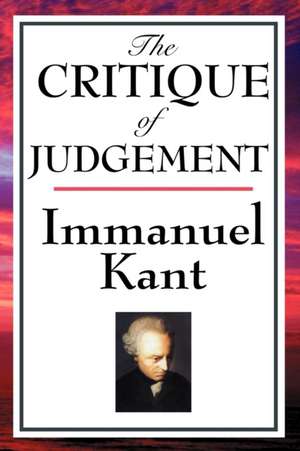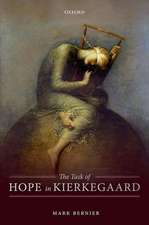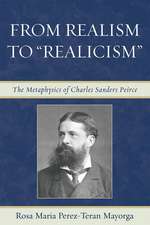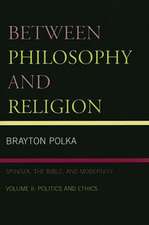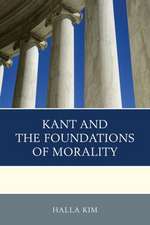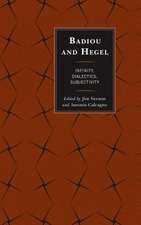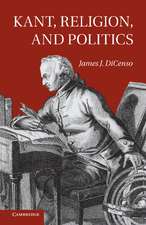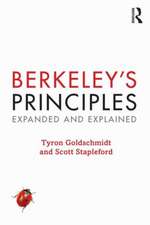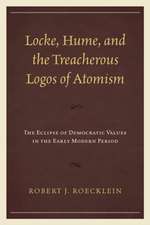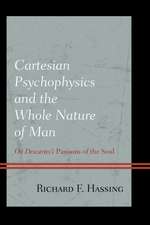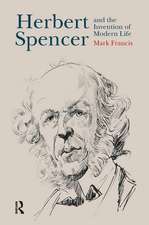The Critique of Judgement
Autor Immanuel Kanten Limba Engleză Paperback – 17 mar 2008
| Toate formatele și edițiile | Preț | Express |
|---|---|---|
| Paperback (8) | 60.71 lei 3-5 săpt. | |
| – | 60.71 lei 3-5 săpt. | |
| OUP OXFORD – 11 sep 2008 | 74.81 lei 10-16 zile | +27.32 lei 7-13 zile |
| Birmingham Free Press – | 107.90 lei 3-5 săpt. | |
| A & D Publishing – 17 mar 2008 | 85.54 lei 6-8 săpt. | |
| Digireads.com – 31 dec 2009 | 124.82 lei 38-44 zile | |
| Free Press – | 134.65 lei 6-8 săpt. | |
| CreateSpace Independent Publishing Platform – | 182.00 lei 6-8 săpt. | |
| OUP OXFORD – 5 oct 1978 | 354.39 lei 31-37 zile | |
| Hardback (1) | 134.88 lei 6-8 săpt. | |
| A & D Publishing – 3 apr 2018 | 134.88 lei 6-8 săpt. |
Preț: 85.54 lei
Nou
Puncte Express: 128
Preț estimativ în valută:
16.37€ • 17.09$ • 13.55£
16.37€ • 17.09$ • 13.55£
Carte tipărită la comandă
Livrare economică 05-19 aprilie
Preluare comenzi: 021 569.72.76
Specificații
ISBN-13: 9781604592733
ISBN-10: 1604592737
Pagini: 136
Dimensiuni: 152 x 229 x 8 mm
Greutate: 0.21 kg
Editura: A & D Publishing
ISBN-10: 1604592737
Pagini: 136
Dimensiuni: 152 x 229 x 8 mm
Greutate: 0.21 kg
Editura: A & D Publishing
Notă biografică
Immanuel Kant ( 22 April 1724 - 12 February 1804) was an influential German philosopher[23] in the Age of Enlightenment. In his doctrine of transcendental idealism, he argued that space, time, and causation are mere sensibilities; "things-in-themselves" exist, but their nature is unknowable.[24][25] In his view, the mind shapes and structures experience, with all human experience sharing certain structural features. In one of his major works, the Critique of Pure Reason (1781; second edition 1787),[26] he drew a parallel to the Copernican revolution in his proposition that worldly objects can be intuited a priori ('beforehand'), and that intuition is therefore independent from objective reality.[b]
Kant believed that reason is also the source of morality, and that aesthetics arise from a faculty of disinterested judgment. Kant's views continue to have a major influence on contemporary philosophy, especially the fields of epistemology, ethics, political theory, and post-modern aesthetics. He attempted to explain the relationship between reason and human experience and to move beyond the failures of traditional philosophy and metaphysics. He wanted to put an end to what he saw as an era of futile and speculative theories of human experience, while resisting the skepticism of thinkers such as David Hume. He regarded himself as showing the way past the impasse between rationalists and empiricists,[28] and is widely held to have synthesized both traditions in his thought.[29]
Kant was an exponent of the idea that perpetual peace could be secured through universal democracy and international cooperation. He believed that this would be the eventual outcome of universal history, although it is not rationally planned.[30] The nature of Kant's religious ideas continues to be the subject of philosophical dispute, with viewpoints ranging from the impression that he was an initial advocate of atheism who at some point developed an ontological argument for God, to more critical treatments epitomized by Schopenhauer, who criticized the imperative form of Kantian ethics as "theological morals" and the "Mosaic Decalogue in disguise",[31] and Nietzsche, who claimed that Kant had "theologian blood"[32] and was merely a sophisticated apologist for traditional Christian faith
Descriere
Descriere de la o altă ediție sau format:
'beauty has purport and significance only for human beings, for beings at once animal and rational'In the Critique of Judgement (1790) Kant offers a penetrating analysis of our experience of the beautiful and the sublime, discussing the objectivity of taste, aesthetic disinterestedness, the relation of art and nature, the role of imagination, genius and originality, the limits of representation and the connection between morality and the aesthetic. He also investigates the validity of our judgements concerning the apparent purposiveness of nature with respect to the highest interests of reason and enlightenment. The work profoundly influenced the artists and writers of the classical and romantic period and the philosophy of Hegel and Schelling. It has remained a central point of reference from Schopenhauer and Nietzsche through to phenomenology, hermeneutics, the Frankfurt School, analytical aesthetics and contemporary critical theory. J. C. Meredith's classic translation has been revised in accordance with standard modern renderings and provided with a bilingual glossary. This edition also includes the important 'First Introduction' that Kant originally composed for the work. ABOUT THE SERIES: For over 100 years Oxford World's Classics has made available the widest range of literature from around the globe. Each affordable volume reflects Oxford's commitment to scholarship, providing the most accurate text plus a wealth of other valuable features, including expert introductions by leading authorities, helpful notes to clarify the text, up-to-date bibliographies for further study, and much more.
'beauty has purport and significance only for human beings, for beings at once animal and rational'In the Critique of Judgement (1790) Kant offers a penetrating analysis of our experience of the beautiful and the sublime, discussing the objectivity of taste, aesthetic disinterestedness, the relation of art and nature, the role of imagination, genius and originality, the limits of representation and the connection between morality and the aesthetic. He also investigates the validity of our judgements concerning the apparent purposiveness of nature with respect to the highest interests of reason and enlightenment. The work profoundly influenced the artists and writers of the classical and romantic period and the philosophy of Hegel and Schelling. It has remained a central point of reference from Schopenhauer and Nietzsche through to phenomenology, hermeneutics, the Frankfurt School, analytical aesthetics and contemporary critical theory. J. C. Meredith's classic translation has been revised in accordance with standard modern renderings and provided with a bilingual glossary. This edition also includes the important 'First Introduction' that Kant originally composed for the work. ABOUT THE SERIES: For over 100 years Oxford World's Classics has made available the widest range of literature from around the globe. Each affordable volume reflects Oxford's commitment to scholarship, providing the most accurate text plus a wealth of other valuable features, including expert introductions by leading authorities, helpful notes to clarify the text, up-to-date bibliographies for further study, and much more.
